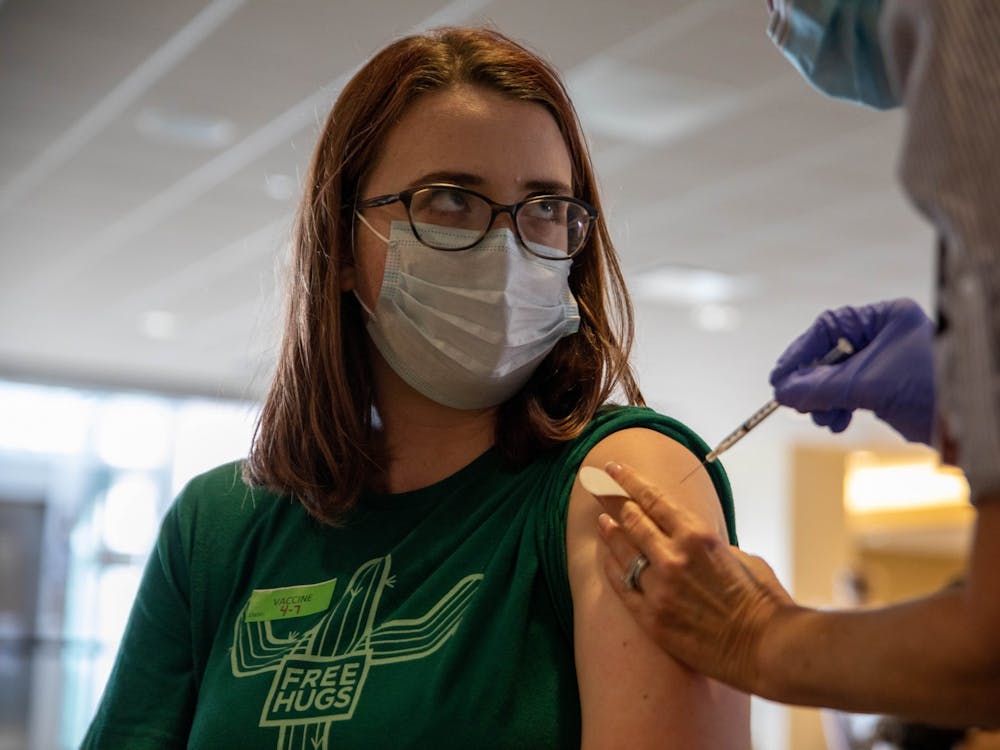As college students, day-to-day lives are hectic, fast paced and can be stressful.
With everything going on, some may experience an inability to focus, inconsistent behaviors and irritability or mood swings. These may be signs of a bigger issue: undiagnosed adult Attention Deficit Hyperactivity Disorder (ADHD).
ADHD is one of the most common neurodevelopmental childhood disorders and can continue through adolescence and adulthood, according to the National Institute of Mental Health. Symptoms in children include difficulty staying focused and paying attention, difficulty controlling behavior and, most common, hyperactivity.
ADHD is a highly genetic disorder, said Russell A. Barkley, clinical professor of psychiatry at the Medical University of South Carolina and author of "Taking Charge of Adult ADHD."
About 65-75 percent of ADHD cases arise from inheritance, while the remainder is usually acquired through some event that affects brain development.
There are times where ADHD may go undiagnosed and, if untreated as an adult, can be extremely problematic, Barkley said.
“Adult ADHD is found in about 3-5 percent or so of adults. It is somewhat lower than in children (7-8 percent) because some children may either outgrow it or at least decline enough in their symptoms,” Barkley said. “Adults with untreated ADHD are at increased risk of impairment in most major life activities, including not just education but occupational functioning.”
Along with ADHD, around 80 percent of adults may also suffer with additional disorders, like anxiety, depression, learning disabilities, antisocial personality and substance use disorders. About 50 percent may have two or more additional disorders.
Jake Griffin, president of Ball State’s Active Minds, a student-run non-profit organization that promotes mental health awareness, education and advocacy, has had ADHD himself since first grade. He said the disorder constantly weighs on him.
“It is a constant struggle to remember to not only take medication, but just staying organized and focused in general — I think it's something many of my peers take for granted,” Griffin said.
In order for him to get moving for his first class, he said he has to wake up a few hours early to take his medicine and get breakfast in before it starts to curve his appetite. He's only able to do assignments when his medicine's half-life is at its peak.
"It's hard for a lot of people to see past my ADHD because I'm sure it is frustrating — how often I drop the ball on group or organizational projects, forget assignments and open messages and don't reply," he said.
Griffin said it’s important for students who may feel like they are dealing with ADHD to seek an evaluation.
“College is a very trying time for students and between ages 18-24, most mental illnesses present themselves,” Griffin said. “It's important that if you're struggling, you should complete a psychological evaluation from a behavioral health specialist or psychologist.”
Ball State has multiple outreach service to provide help to any students who are struggling.
The Psychoeducational Diagnostic Intervention Clinic, located in the Teachers College, conducts psychological and educational assessments of individuals of any age, gender or race, according to bsu.edu. Faculty and students from the Department of Educational Psychology provide these services at a small cost.
Along with the clinic, the Office of Disability Services and the Counseling Center are also available to provide accommodations to those with ADHD.





